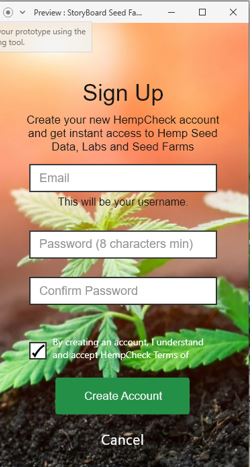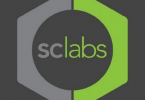Jim Cupples, CEO of HempCheck, Envisions Blockchain as the Solution
Hemp farmers face a fresh obstacle. It has nothing to do with stubborn legislators. Far more insidious, this threat surfaces from within the booming industry. It reaches deeper than roots. When farmers realize the truth, it’s too late — even their best-laid crops go astray.
What could possibly cause such heartache?
Seeds.
In 2018, hemp farmer Jerry Paul invested in feminized seeds for CBD-rich hemp cultivars. But the seeds were not fully feminized. Nor were they rich in CBD. The inferior plants pollinated nearby cannabis crops. With no other choice, Paul mounted a $21.2 million lawsuit to recover catastrophic losses. Then in 2019, a processing company in Lexington, Kentucky, suffered over $40 million in losses due to non-feminized hemp seeds that devastated an entire season.
These are not isolated cases.
In response to this buyer-beware seed market, Oregon native and Terrapin Data co-founder Jim Cupples turned to a unique technology that he believes “perfect when the stakes are high and there is a big lack of trust.” The burgeoning technology is known as blockchain, which he uses in his company’s latest product: HempCheck.
What is Blockchain?
Blockchain refers to “blocks” of information or data that are stored and connected via cryptography to a decentralized database known as a “chain.” According to IBM, this creates a “distributed ledger” with an “immutable record of transactions.”
A more approachable definition is blockchain as a “shared database that is managed by a global network of computers.” The computers/physical devices that access the blockchain are usually called nodes or peers. The nodes are all connected, and the blockchain is updated continuously across them (without intermediaries). Updates are transparent and cannot be reversed.
This is unlike most databases, which rely on a central common processor. The traditional, non-blockchain database is highly controlled from the top down; an administrator creates user accounts and provides authentication so users can access stored data.
Blockchain technology was popularized by cryptocurrency, particularly Bitcoin; the immutable and transparent nature of blockchain means that such digital currencies are self-validated without third-party financial intermediaries (e.g., governments, banks, etc.).
Blockchain Meets Hemp Seeds
Jim Cupples is developing a novel use for blockchain — namely, a way to securely store and deliver third-party hereditary data on hemp seeds. Seed purchasers receive access to this data in the form of reports. “I’ve always been interested in blockchain as a really secure and stable database mechanism,” Cupples said. “Coming from a community with a lot of farmers, I understood the application of blockchain for centralization of records. In blockchains, there are no take backs.”

High Grade Hemp Seed offers 100,000 hemp seeds — with full HempCheck data on genetics, feminization, and lab testing — for $100,000.
Purchasing hemp seeds is a high-stakes game, and laboratory seed reports with “no take backs” serve farmers as a safeguard against scams. “A bag of clover seeds is going to be $70; the same bag of hemp seed is going to be $10,000,” Cupples explained. “You could burn hundreds of acres and your whole opportunity costs and get in trouble with the government.”
Cultivating hemp is challenging. If seed genetics and feminization rates are poor, this challenge becomes an irreversible nightmare. Cupples clarified that his company’s new product, HempCheck, delivers details on “where the crop was grown, the date it was planted, the dates it was harvested, and the lab reports, which are essential. Certified organic status, THC [tetrahydrocannabinol] content, and feminization rate go straight from the lab to blockchain.” HempCheck thus supplies farmers with digestible details on parent plants that are impossible to manipulate.
“It provides that level of insurance that, as of right now, does not exist,” Cupples said.
HempCheck has partnered with High Grade Hemp Seed, one of the most reputed hemp seed producers in the nation. Justin Jones, director of High Grade’s Oregon Operations, echoed Cupples’ enthusiasm: “We’re excited to be able to have a transparent way to view the information and know that somebody didn’t Photoshop someone else’s document. Our lab reports will be in the blockchain.”

HempCheck tracks and stores immutable hereditary data and lab reports on hemp seeds.
Blockchain is More than Cryptocurrency
HempCheck comes at a time when blockchain is revealing its explosive potential beyond volatile cryptocurrency. Cupples expressed that “the biggest misconception about blockchain is that its primary use is cryptocurrency and Bitcoin. Blockchain can completely disrupt fraudulent behavior. It eliminates loopholes.”
Wal-Mart and IBM partnered on several blockchain applications, including a track-and-trace system for leafy greens. In the event of a pathogen outbreak (such as E. coli), this allows the retailer to pinpoint the origin and affected locations. The implications for food transparency and safety are paradigm-shifting.
The U.S. Food & Drug Administration (FDA) recently announced plans to roll out a blockchain system for pharmaceuticals in collaboration with Wal-Mart, Merck, and IBM. “[The FDA is] going to be pushing more and more towards putting everything on blockchain,” Cupples predicted.
HempCheck & the Future
Of course, designing and implementing this technology is easier said than done. “There’s a learning curve with blockchain,” Cupples admitted. “Anytime you do something technical that’s worth something, there should be a challenge.”
That’s not to say that this is Cupples’ first rodeo. One of his current projects, All The Farms, relies on a permissioned/private blockchain (using the Hyperledger platform). The approach made sense for All The Farms since the purpose is an “address searchable database that [allows] people to find their local farms and ranches.” Cupples launched this program to support local, sustainable agriculture. The shared ledger restricts access and data modification to approved participants, providing greater efficiency and scalability. “All the nodes are controlled, and you know exactly who has access,” Cupples explained.

Open blockchain confers public access. HempCheck offers permissioned and public options.
He expanded the vision for HempCheck to include both permissioned and open/public blockchains. Featuring open access, public blockchains are less centralized, more interoperable, and increasingly anonymous. “We had to learn a new platform,” Cupples continued, referring to the VeChain platform. “We don’t know which way the industry will go. We had the bandwidth to run these two products, so it made sense to do that.”
Cupples relied on a professional industry contact to develop the public blockchain. But he recruited four engineering students (interns) from Oregon State University (OSU) to tackle the permissioned side. OSU houses the Global Hemp Innovation Center, the nation’s largest facility for hemp research and seed certification. HempCheck’s cofounder, Rachel Hankins, also works on behalf of OSU’s hemp seed certification program.
Surging lawsuits for fraudulent seeds were only part of the equation for Cupples and his team. The power of hemp as a remediation bio-accumulator, cover crop, and sustainable industrial resource fuel their core passion. “We’re big believers in hemp for environmental qualities and the way it plays into regenerative agriculture,” Cupples declared. “For the vast majority of my life, hemp has been foolishly outlawed. Our planet’s in crisis, and this is one thing that’s positive.”
Currently in the prototype stage, HempCheck will publicly launch for other hemp seed producers in June 2020.
Regarding the future of blockchain in agriculture, Cupples reiterated that it makes sense “when there’s a lack of trust and stakes are high.” He joked about cheap grass seeds, which probably don’t need to be tracked and recorded with airtight security.
Nonetheless, blockchain would help farmers transitioning to certified organic status since this process requires five years of meticulous record keeping. Cupples foresees that “[blockchain] could become the de facto tool on keeping that information.”
It’s possible that blockchain may reach other types of seeds, such as those with organic certification. But of course, there’s no plant on the planet quite like hemp.
“The more we can grow good hemp, the lower the price gets per seed. The lower the price gets per seed, the more that it can be used,” Cupples proclaimed. “It may sound cheesy or cliché, but the mission behind our company is simply to help create the world we want to see.”








